Disclaimer: This post contains affiliate links to handpicked partners, including tours, gear and booking sites. If you click through or buy something via one of them, I may receive a small commission. This is at no extra cost to you and allows this site to keep running.
Choosing to travel to Israel and the Palestinian Territories is not only a chance to see history and nature but also to gain a clearer perspective on the conflict in the region.
“Why would anyone want to visit an aggressive, racist, right-wing country?” was a comment I saw before I decided to travel to Israel. Endless conversations ensue, wrapped in intense debate and extreme anger, followed by a discussion on how to better understand the history and see the natural landscapes and vibrant cities.
Getting to grips with the history and divided opinion is one thing, but you need to travel beyond just Israel and into the Palestinian Territories like the West Bank to better understand it. Here’s how.
October 2023 – Israel-Gaza war: Stay up to date with current developments. There is a live news feed from the BBC and live updates from CNN and AlJazeera’s feed. Any form of an uprising that ignites in the Middle East fully occupies the world media. And, undoubtedly, you shouldn’t travel to Israel and Palestine during any kind of conflict. There’s no question about that.
Contents
Before You Travel to Israel and Palestine
The intense history of Israel and Palestine means absolutely need to be informed how things come to stand in the modern-day.
That the historical timeline of the modern construct of what is now the nation of Israel is about post-war occupation and ongoing conflicts that have led to illegal settlements and the displacement of people already within the country known as Palestine.
Hours are spent sifting through articles, books and opinions, trying to make sense of everything, and it’s a never-ending lesson.
In short (even though the history is impossible to simplify), during the British administration of ‘Mandatory Palestine’ from 1920 to 1948, various misinterpretations and conflicts surrounding issues such as Arab independence (in response to them helping to drive out the Ottoman Turks who controlled much of the region) and the support of the pro-Zionist ‘Balfour Declaration’ (calling for the reinstatement of the Jewish “national home” in Palestine in repatriation for the Jews exiled by the Ottoman Turks during World War I) led to the rise of two nationalist movements amongst the Jews and the Arabs.
The civil war led to the Arab-Israeli war in 1948, with the ceasefire a year later forming the partitions we see today – the newly formed Israel, and, wedged on either side, the Palestinian West Bank that borders Jordan (with both Jewish and Arab settlements), and the Gaza Strip in the west.
I don’t condone and nor can I fathom how and why a nation can suppress another, with brick walls, partitions, and a breach of basic human rights. I don’t condone the actions of the Israeli government, nor those of the Palestinian Governments that spark so much anger and fury amongst many. The existence of extremist groups will never aid a step toward reconciliation or the call for a Two-State system.
But there are plenty of people living there who are in no way representative of the actions of a ruling party or an era of long-standing conflict, most of whom want one thing. Peace. Some actively work together to bridge the divide.
Religion, land, occupation, and war go hand in hand, but we must take note of the communities outside of the regimes and decision-making.
This is exactly what I wanted to try to do and tell you about. Here’s an overview of what I saw in Israel and the Palestinian Territories in two weeks outside of a Jerusalem-Tel Aviv city break trip.
Where to Go in Israel
Jerusalem – One of the World’s Oldest Cities
Give Jerusalem a few days, exploring one of the oldest cities in the world sacred to Judaism, Christianity and Islam by foot and by bike, seeking out quiet back alleys, neighbourhoods and forgotten pathways. All this, alongside ancient treasures on a Holy City tour visiting Jewish (King David’s Tomb, the Western (Wailing) Wall and remains of the ancient Jewish Temple), Muslim (the site where the Prophet Mohammed ascended to heaven, the Dome of the Rock and the Al Aqsa Mosque) and Christian sites (the Via Dolorosa along which Christ walked to his crucifixion, the room of the last supper and the Church of the Holy Sepulchre) to understand the rich history and religious complexities of Jerusalem.
READ MORE: Travel to Jerusalem – Religious Calling and Contemporary Culture
Northern Israel – The Mountainous Terrain
From swimming in the Sea of Galilee and traversing the mountainous terrain of the region to exploring Jesus’ hometown of Nazareth, you can explore this stretch of landscape that holds great historical significance, including the Roman ruins in Caesarea and Banias Nature Reserve.
READ MORE: Why You Should Visit Nazareth – Revival Beyond Biblical Reference
To the far north is Haifa, Israel’s third-largest city, where you can marvel at the magnificent view of Galilee from Mount Precipice before heading to other northern cities, including Akko and Rosh Hanikra, the latter being known for its caves and tunnels that were once hidden for centuries.
Southern Israel – The Desert Lands
Close to the West Bank border is the Masada Fortress. Here, witness what has been dubbed as one of the world’s best sunrises before visiting the Ein Gedi Nature Reserve.
READ MORE: Things to Do in Southern Israel – The Natural Wonders of Masada, Ein Gedi and the Dead Sea
Mitzpe Ramon, a town in the Negev Desert, founded as a camp for the workers building the road to Eilat in 1951, is also the site of the 6 km wide, 450 meters deep Ramon Crater.
READ MORE: Mitzpe Ramon Crater in Israel – Into the Depths of the Negev Desert
Tel Aviv City – Israel’s Vibrant, Cosmopolitan City
In Britain, our news has always been filled with bad press about Tel Aviv; few know it as a modern and vibrant metropolis that sits along the Mediterranean coast.
READ MORE: Visiting Tel Aviv – Best Neighbourhoods
Where to Go in Palestinian Territories
The West Bank – Culture and Landscape
We all hear about the West Bank, but rarely do we get an insight into the culture and history of the region. In this region, you can visit:
- The key historical spots of Bethlehem, Jericho, Taybeh and Ramallah.
- The Samaritan village at Mount Geriszim and learn more about the Samaritan people whose history dates back to the Roman era.
- The Balata refugee camp and neighbouring old cities of Nablus and Sebastia are full of ancient sites of worship, yet are prime destinations to gain insight into the Palestinian refugee issue in the area.
- The Dead Sea, to float in salt waters 400 metres below sea level.
The West Bank – History and Conflict From Both Sides
On the ‘Dual Narrative Tour’ in Hebron, this is your chance to explore both perspectives on the Israeli-Palestinian conflict in a place that is one of the four holy cities in Judaism and a sacred place in Islam. I spent the morning in ‘H2’ – the Jewish ‘settlers’ area and the largest city in the West Bank – and the afternoon in ‘H1’, the Palestinian area.
READ MORE: Visiting Hebron in the West Bank – The Divided City of Palestine
I worked in partnership with Tourist Israel and Abraham Tours, who planned an itinerary based on personal interests as well as what will work best with the ethics of this website. Abraham Hostels kindly supported my stay in Jerusalem and facilitated my accommodation elsewhere. All opinions remain my own.

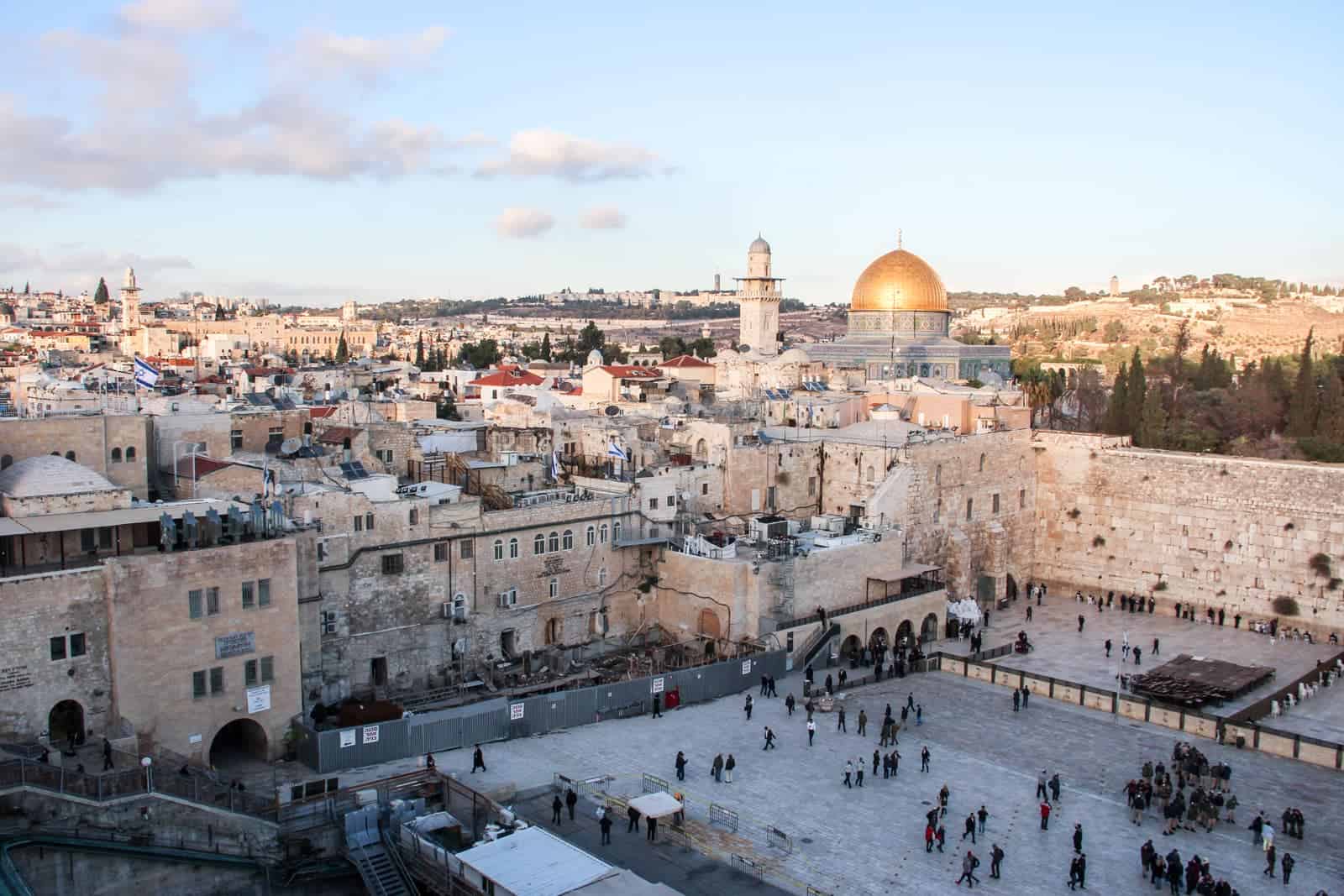
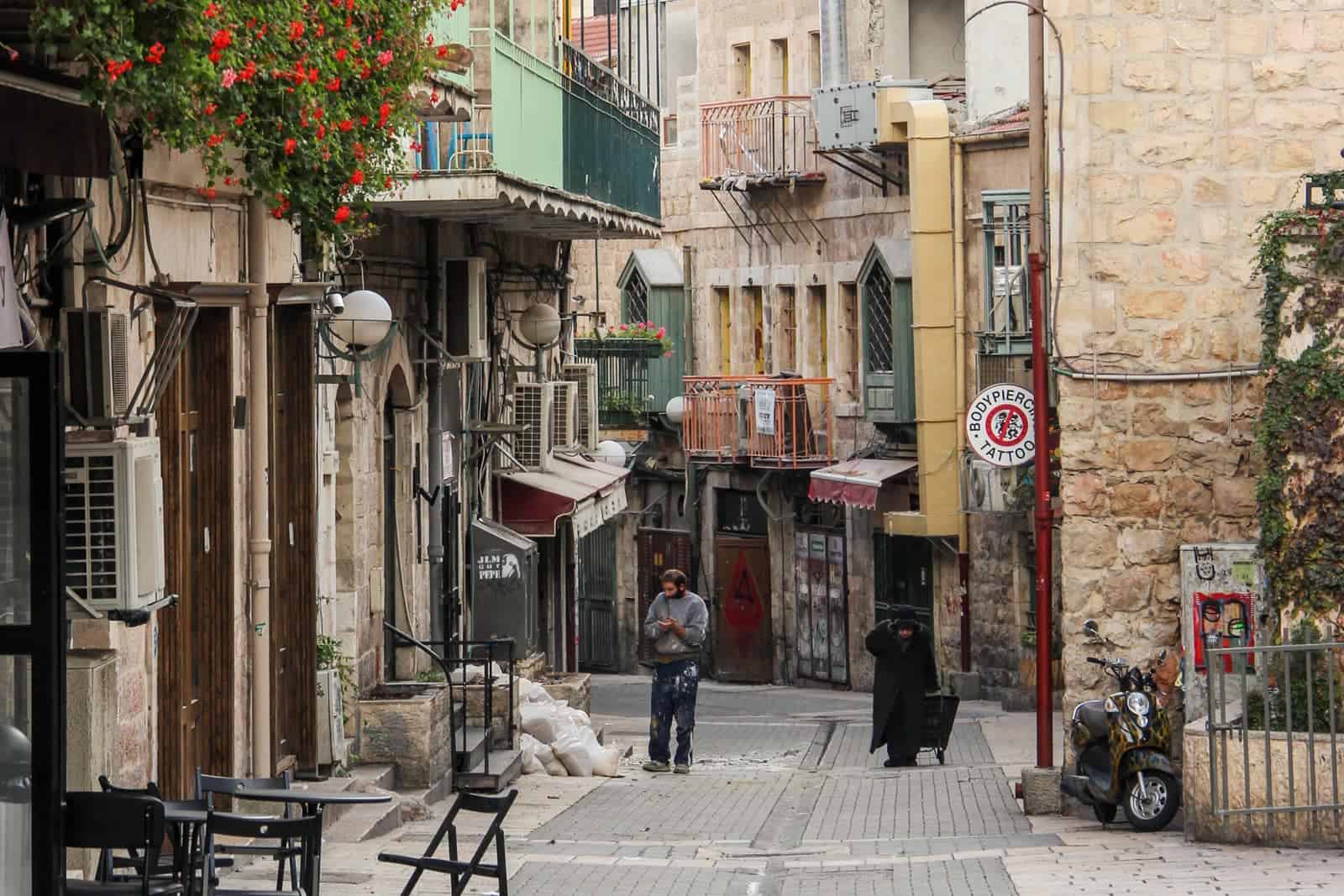
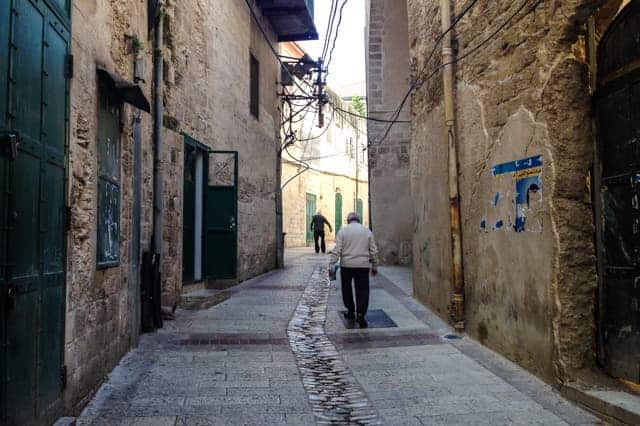
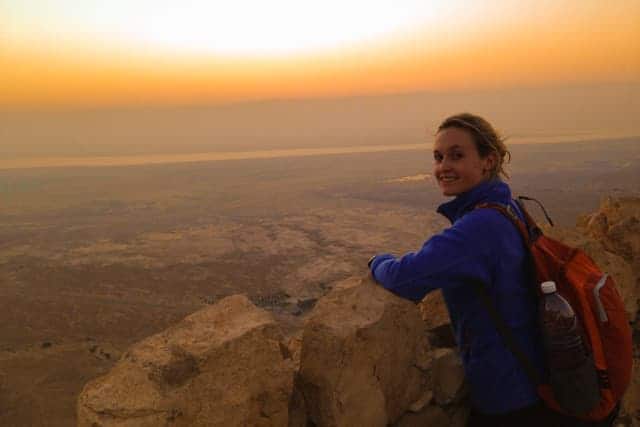
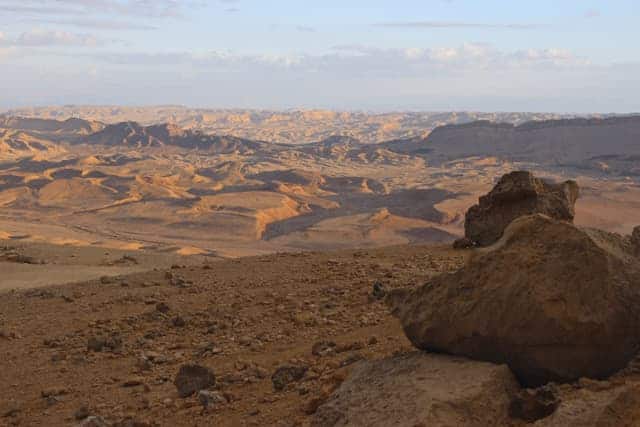
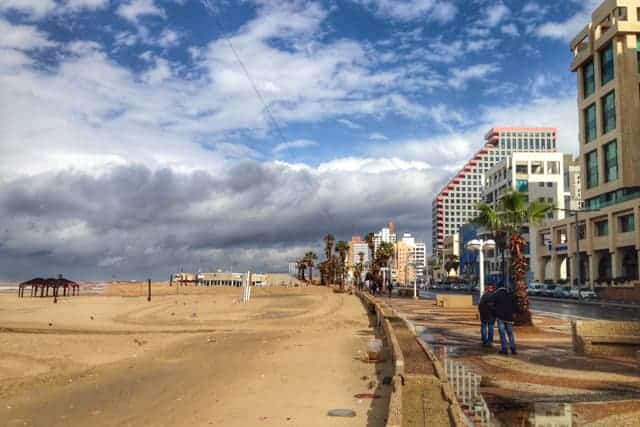
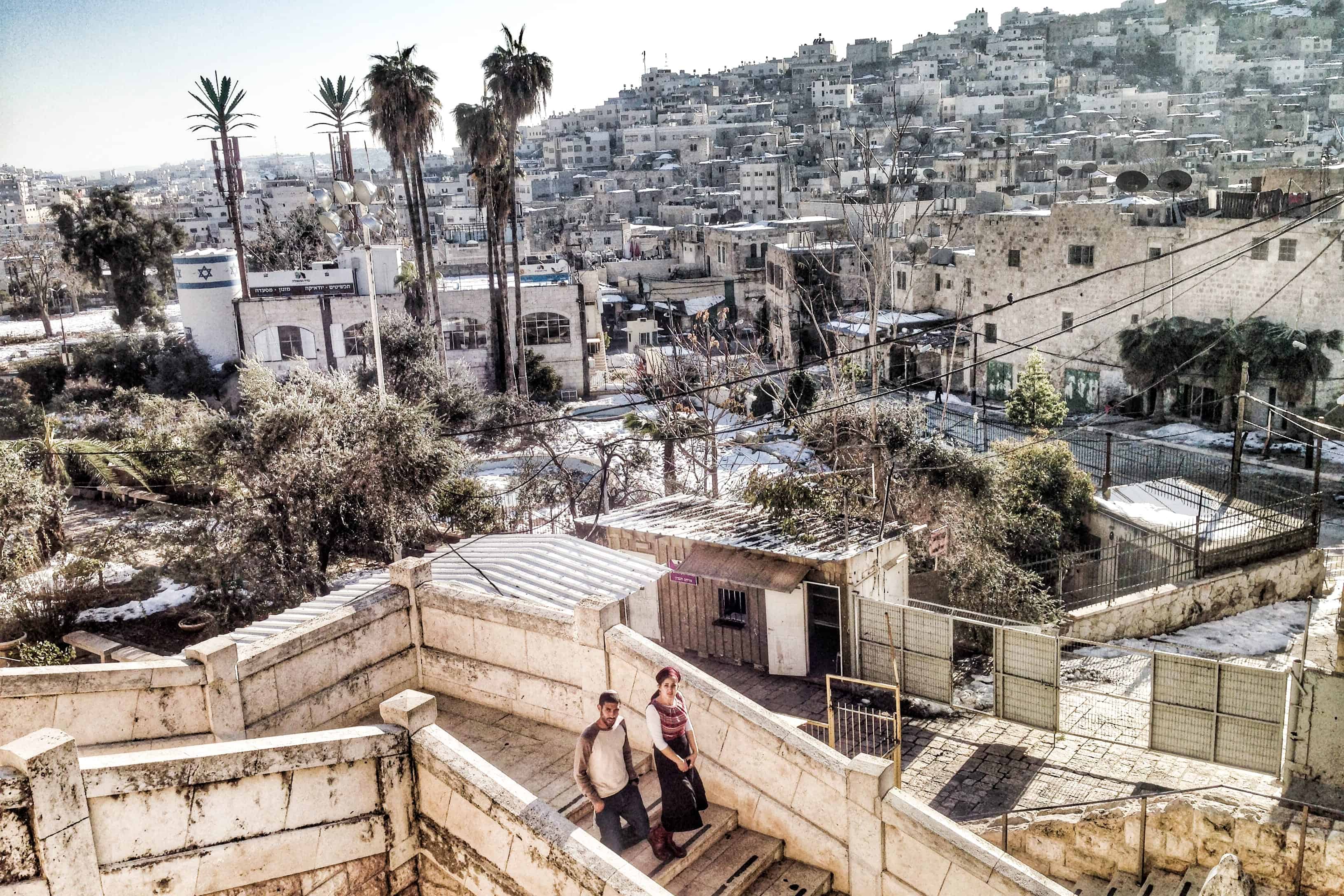

kate says
I’ve always wanted to see israel and think it would be an incredible backpacking destination. I’ve met and gotten to know several israelis in my time, all of whom were kind, funny, welcoming people and jerusalem has always been the stuff of dreams to me. hopefully someday i can get there and experience it for myself!
as for americans getting on their high horses about israel being an “aggressive, racist, right-wing country”: there is no country more aggressive, racist and right-wing than america itself and while the israeli government’s actions cannot be condoned, it would be wise for america to stay out of it and not be the pot calling the kettle black.
Ben says
I don’t think it’s quite as complicated as made out. The media have gone out of their way to shape the whole thing as a geo-political conflict but sooner or later, we’ll all have to address the elephant in the room…
I’m no expert but basically, the Jews have this book. It says that the creator of the universe promised them a piece of land along the Gaza Strip, West Bank and what is now known as (once again?) Israel.
Trouble is, the Jews either left (or were forced out of) their promised land. Sometime later, as you might expect, the Arab tribes grew and prospered, ensuring that the once Jewish promised land came to be occupied by the predominantly Muslim, but also Christian Arabs (each with their own book, simultaneously affirming and refuting content of the first).
Widely believed a miracle in and of itself, this third instalment (the Muslim book) is also claimed to be the final and unalterable word of the same divine creator.
Unfortunately for the Jews (and everybody else) the third and final draft stipulates, with the aid of divine mandate, that neither the Jews, nor Christians, may ever live in this region unless they are adequately subjugated by the Muslim population.
So when the Jews returned to this piece of land several thousand years later, they were somewhat dismayed when the Christian and Arab residents invoked the ancient law of ‘finders-keepers’. The Jewish people declared the ancient law of ‘I was here first’ (and brought lots of non-Arab Christian friends to back them up). In much the same way, the Muslim and Christian Arabs became rather annoyed when they were themselves forced from said land.
As time went on, more and more Jews arrived at/returned to the promised land and as a result, more and more Arabs found themselves displaced..
Alyssa says
Israel seems like such an interesting place to visit. Thank you for sharing your trip plans. Hope you enjoy yourself.
Kayla says
Hi, I am new to your website and this is the first post I read. I myself am traveling to Israel this summer as part of a volunteer group and I have gotten some negative comments from the people around me. I hope to prove to them that the media is not always an accurate description of day to day life in a place. Violence, sadly, occurs daily everywhere in the world and I probably have more of a chance getting mugged in an American City than I do being harmed in Israel. I have traveled a few places by myself and I have to say that I felt safer alone, walking along the streets of unfamiliar countries than I do driving through some major North American cities. Thank you for this post and your others on Israel, they have been very informative.
Becki says
Hi Kayla. I’m glad to hear you too are travelling here with an open mind. Where will you be volunteering? I’m looking into volunteering posts in Hebron. The media will never be accurate and sensationalism accounts for a lost of people’s narrow-minded views. You will see what right and wrong here for yourself and go back and tell others. I never once felt unsafe.
Amber says
I think it is great that you are touring Israel. It has been on my list for so many years, and I was scheduled to be there in November, but cancelled, not out of political beliefs, but just because I was too tired and could not handle planning a trip to such a complex historical country at the time. I don’t think I regret my decision, I am pretty sure I will go soon, but I am excited to follow you on this adventure.
Becki says
It’s certainly not the place to be if you are too tired and exhausted from travelling, so I can see why you let it go at that time. If you have a vested interest in what is happening here, it’s mind blowing. Also, it’s important to understand the history and the current political climate in order to fully get to grips with the country as a whole (despite its magnificent landscape). I hope it’s back on your shortlist soon 🙂